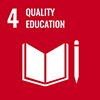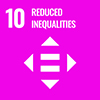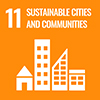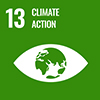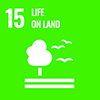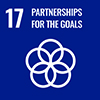When Dr. Mahed Choudhury looks at a wildfire, he doesn’t just see a natural event—he sees a deeply human story.
“Disasters essentially involve humans,” he says. “If there is no human, there is no disaster.”
That perspective shapes Choudhury’s interdisciplinary research into the social and cultural impacts of climate-induced natural hazards, particularly wildfires. His work explores how people, communities and institutions respond to these crises, and how resilience, inclusion and equity can be strengthened in the process.
A journey shaped by lived experience
Choudhury holds an interdisciplinary PhD in natural resources and environmental management and a master of natural resource management from the University of Manitoba. He also holds a thesis-based master’s and a four-year bachelor’s degree in sociology. Before recently joining Thompson Rivers University (TRU), he worked as a postdoctoral research associate at Dalhousie University and the University of Calgary.
His lived experiences with natural hazards sparked his academic path. “I was driven by the question: how can individuals and communities live and co-exist with natural hazards?” he says.
That question still guides his work, along with the view that disaster management needs an understanding of people as well as landscapes.
Connecting research and teaching
At TRU, Choudhury’s research aligns with the university’s growing focus on wildfire research and community resilience. His work reflects TRU’s commitment to use-inspired research—applying academic expertise to real-world challenges and delivering practical outcomes that strengthen communities.
He will teach three courses in winter 2026 as part of the new Sociocultural Dynamics of Wildfire Certificate: Colonial Land-Use Management and Wildfire (FIRE 2100), Braiding Knowledges: Western and Indigenous Perspectives on Wildfires (FIRE 2110) and Wildfire Impacts on Rural, Indigenous and Recreational Tourism (FIRE 2120).
Through these courses, students will examine the social, cultural and political forces that shape wildfire risk and explore new ways of understanding and living with fire.
“For example, in FIRE 2100, students will explore how colonial land-use management contributed to the erosion of ecological and societal resilience,” says Choudhury. “These courses encourage students to think critically about how the current wildfire crisis is socially constructed and how Indigenous knowledge can inform more adaptive, just approaches.”
Redefining resilience
For Choudhury, resilience is not about returning to what was. It is about learning, adapting and growing stronger.
“Resilience is a strength-based approach,” he explains. “It’s about the knowledge, networks and learning capacity that already exist within a community. Any intervention to build resilience must be locally and culturally relevant.”
He adds that resilience is also shaped by social and political factors, including gender, ethnicity and power. That is why he advocates for equitable and inclusive approaches to disaster preparedness, response and recovery.
Building better systems together
Choudhury’s research also looks beyond the community level to explore how governance and institutional collaboration affect disaster response and recovery.
“I study multi-level institutional arrangements for disaster governance, how different levels of government and organizations work together and where barriers or opportunities exist,” he says.
Ultimately, his work seeks to inform more inclusive, community-driven models of wildfire resilience, where every voice, from local residents to Indigenous leaders, has a seat at the table.
“Wildfire resilience is not just about preventing loss,” says Choudhury. “It’s about how we, as societies, choose to live with fire and how we can learn from it to build a more sustainable and just future.”
Choudhury’s work connects to TRU Wildfire, a university-wide initiative advancing research, education, training and innovation to address current and future wildfire challenges. Learn more.
Thompson Rivers University is leading in sustainability. Learn more about TRU’s contributions to the UN Sustainable Development Goals.

